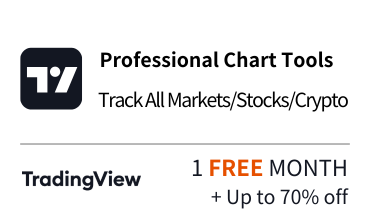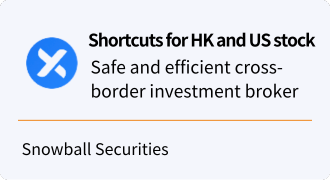A must-read for novice investors: U.S. stock brokerage trading varieties
[DISCLAIMER] This article is for educational and informational purposes only and does not constitute investment advice. Readers should consult with qualified financial professionals before making any investment decisions.
Do you remember the first time I logged into my U.S. stock trading account? I was like a kid in a candy store, excited and confused by all the trading options. “What are stocks, ETFs, options, ......, and what can I trade? Which ones can I trade?” These questions were swirling in my head.
Hi, I'm Uncle HaWai, an independent financial blogger obsessed with demystifying the financial markets. After more than 20 years of investing in U.S. stocks, I've grown from a confused novice to an investor who can navigate through a wide range of financial instruments. Today, I'd like to take you on a journey of discovery and unravel the mysteries of the U.S. stock brokerage industry.
Whether you're new to the U.S. stock market or a seasoned investor looking to expand your horizons, this article will open new doors for you. Are you ready? Let's take a deep dive into the financial ocean of the U.S. stock market and see some of the glittering pearls of investment!
Ⅰ. Stocks: the main players in the U.S. stock market
First of all, the most basic and common type of trading is of course stocks. From tech giants such as Apple and Google to traditional giants such as Coca-Cola and Wal-Mart, the U.S. stock market offers us a wealth of choices. I remember the excitement I felt when I first bought U.S. stocks, as if I had instantly become part of a global business empire.
However, it is important to note that, unlike A-shares, the U.S. stock market also offers some special types of stocks:
ADR (American Depository Receipts): You can invest in non-US companies like Alibaba.
Preferred shares: have preferred dividend rights over ordinary shares, but usually do not have voting rights.
Ⅱ. ETF: A Basket of Investment Wisdom
ETFs (Exchange Traded Open-Ended Index Funds) are one of my personal favorite investment tools. It allows us to buy all the constituents of an industry or an index at once. For example, by purchasing SPY, I am buying all the constituents of the S&P 500 at once. For investors who want to diversify their risk without spending too much time researching individual stocks, ETFs are an excellent choice.
Ⅲ. Options: A High-Risk, High-Yield Game
When I was first introduced to options trading, I was both excited and scared. Options provide leverage, allowing you to control a large number of stocks with a small amount of capital. The potential gains are huge, but the risks are equally high. Most U.S. brokerage firms offer options trading, but I recommend that novice investors not try it until they fully understand the risks.
Ⅳ. Mutual Funds: Professionally Managed Portfolios
Although not as popular as ETFs, mutual funds are still the choice of many investors. They are managed by professional fund managers and are suitable for investors who want to leave their investment decisions to the professionals. Personally, I prefer ETFs, but I have to admit, there are some areas where the performance of good mutual funds is really impressive.
Ⅴ. Bonds: A proxy for stable income
Bonds are a good choice for investors with a low risk tolerance or those who want to balance their portfolios. U.S. Treasuries, corporate bonds, and municipal bonds are all common types of bonds. I usually allocate a certain percentage of my portfolio to bonds to minimize overall risk.
Ⅵ. Forex: The Global Currency Trading Floor
Although not all U.S. stockbrokers offer foreign exchange trading, many do support it. Forex trading allows us to invest in major currencies around the world, but be aware that this is a more volatile and risky market. However, I personally prefer to use MT4 or MT5 software to trade forex.
Ⅶ. Cryptocurrencies: an emerging investment category
With the rise of cryptocurrencies, some U.S. stockbrokers have started to provide trading services for cryptocurrencies such as Bitcoin and Ether. However, it is important to note that not all brokers support this business, and the high volatility of cryptocurrencies means high risk.
Ⅷ. Over-the-counter (OTC) trading: niche but with lots of opportunities
Some U.S. brokerage firms also offer over-the-counter (OTC) trading, which allows us to invest in smaller companies that are not listed on mainstream exchanges. There are both opportunities and risks here, so you need to be very careful. For Chinese investors, this may be a way to gain exposure to some emerging markets and innovative companies.
Ⅸ. Special Considerations for Mainland Chinese Investors
As an investor from Mainland China, there are some special considerations when using a U.S. brokerage:
- Cryptocurrency: Due to Chinese policy, U.S. brokers do not offer cryptocurrency trading services to Mainland Chinese investors.
- Tax issues: It is important to be aware of the tax policies of both the U.S. and China, especially issues such as withholding tax on dividends.
- Appropriateness management: Certain high-risk products may be subject to restrictions, and brokerage firms may impose appropriateness management based on our residency and investment experience.
Ⅹ. Conclusion:
The U.S. stock market offers investors around the world a wide variety of investment choices, ranging from conservative bonds to aggressive options, and from traditional equities to emerging ETFs, to meet virtually any investment need. However, we should be aware that there are some special limitations and considerations that we face as overseas investors.
As an overseas investor who has experienced many ups and downs, my advice is this:
- Start with the basics of stocks and ETFs, and gradually learn about other investment options.
- Never invest in products you don't understand, especially in cross-border investments.
- Pay close attention to changes in your host country's policy on overseas investment.
- Choose a reputable U.S. brokerage firm that is friendly to investors in your home country.
- Consider using a multinational investment service platform that specializes in localized services, as they may offer more localized support.
Remember, there are both opportunities and risks in the U.S. stock market. No matter what type of investment you choose, do your research and risk management. I wish you all the best in investing in the U.S. stock market!
If you still have questions about a specific investment, or if you have any concerns about overseas investors' participation in the U.S. stock market, please feel free to leave a message in the group. Let's grow together in this market full of opportunities and challenges!







